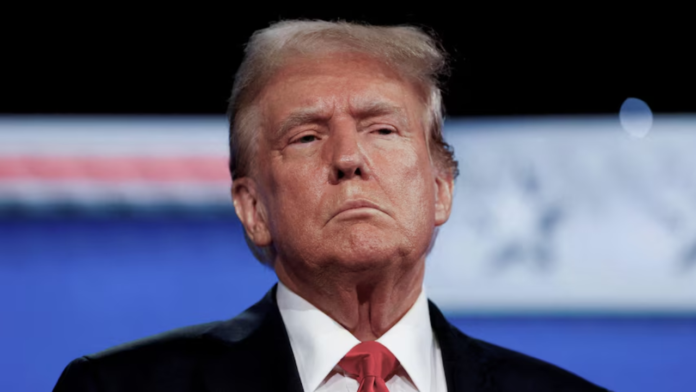U.S. President Donald Trump has announced that exports from Nigeria to the United States will now be subjected to a 14 per cent tariff.
The decision, which was made public during a “Make America Wealthy Again” event in the Rose Garden on Wednesday, is part of a broader strategy aimed at rebalancing global trade and addressing perceived unfair trade practices.
According to The PUNCH, the newly introduced 14 per cent tariff marks a significant shift in the U.S.-Nigeria trade relations, with the U.S. government citing an ongoing trade imbalance.
According to the Trump administration, Nigeria imposes a 27 per cent tariff on U.S. exports, a disparity the U.S. claims has long been detrimental to American businesses and consumers.
In response, the U.S. has now imposed a new tariff on Nigerian exports to mitigate what they argue is an unfair trade arrangement.
In his address, Trump framed the tariff as part of a larger initiative to protect American industries and ensure that foreign nations play by what he described as “fair” trade rules.
Trump declared the start of what he called a new era of “fair trade,” promising to “supercharge America’s industrial base” and force open foreign markets long accused of shutting out U.S. goods.
“This is one of the most important days in American history,” Trump said. “We will supercharge our domestic industrial base. We will pry open foreign markets and break down foreign trade barriers, and ultimately, more production at home will mean stronger competition and lower prices for consumers.
“This will be, indeed, the golden age of Americans coming back. We’re going to come back very strongly.”
In addition to the 14 per cent tariff on Nigerian exports, President Trump also unveiled a broader trade policy that includes a baseline 10 per cent tariff on all U.S. imports.
The new tariffs, which take immediate effect, apply to more than 50 countries.
They include major trade partners like China, the European Union, India, and Japan, as well as developing economies in Asia, Africa, and Latin America.
The new policy is a dramatic shift in global trade and economic policy, rattling markets and stirring fears of a global trade war.
Aside from Nigeria, some African countries that will bear the brunt of the new policy include: Algeria (30 per cent); Lesotho (50 per cent); Mauritius (40 per cent); Kenya (10 per cent); Namibia (21 per cent) and Ethiopia as well as Ghana 10 per cent apiece. South Africa was handed down a reciprocal tariff of 30 per cent.



